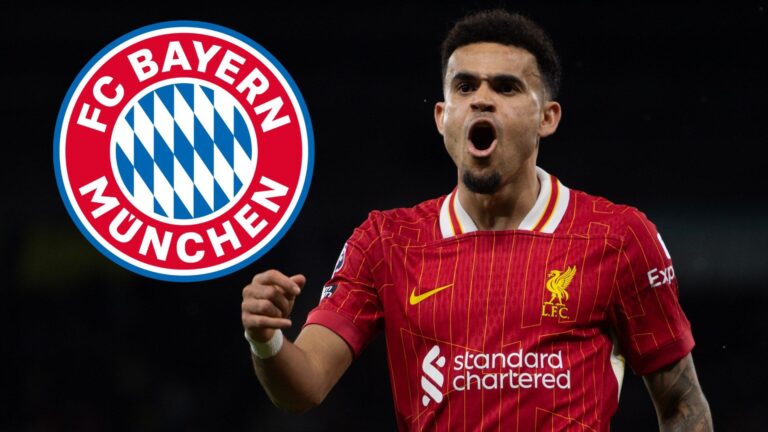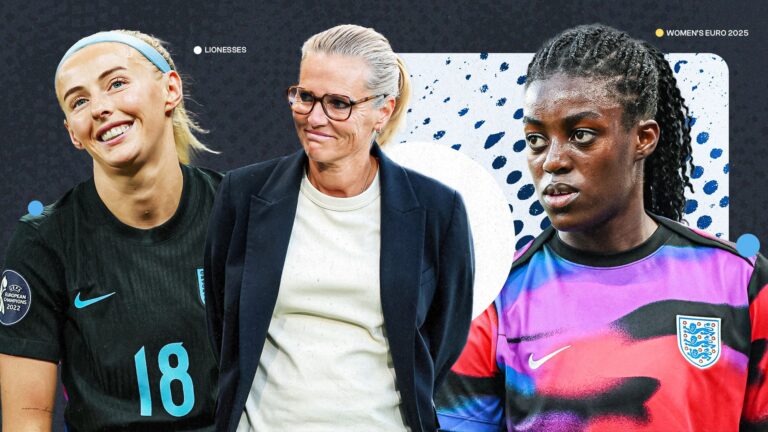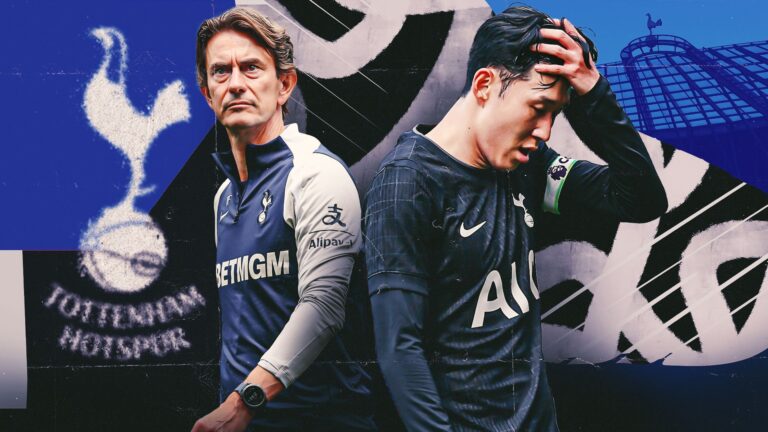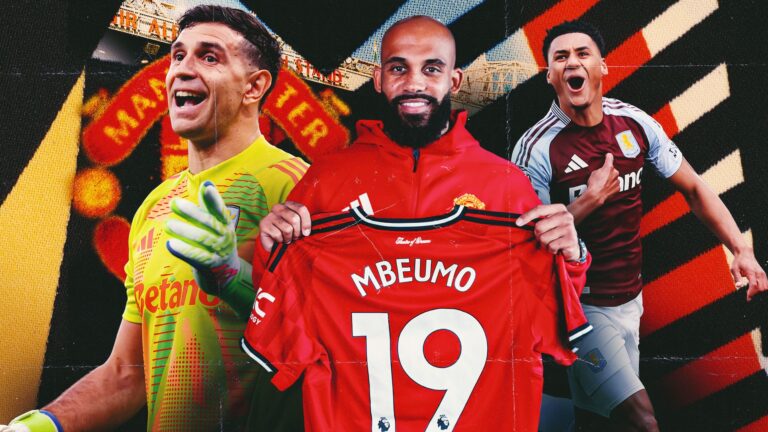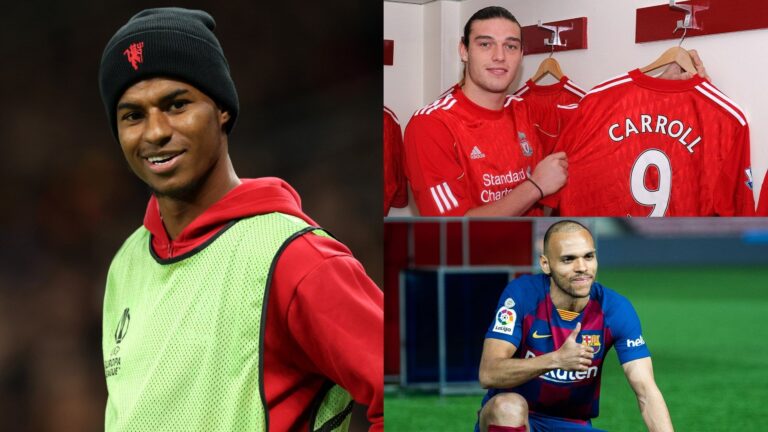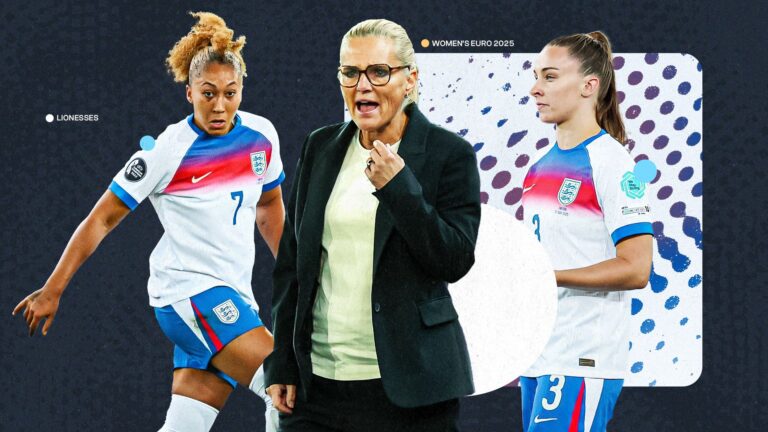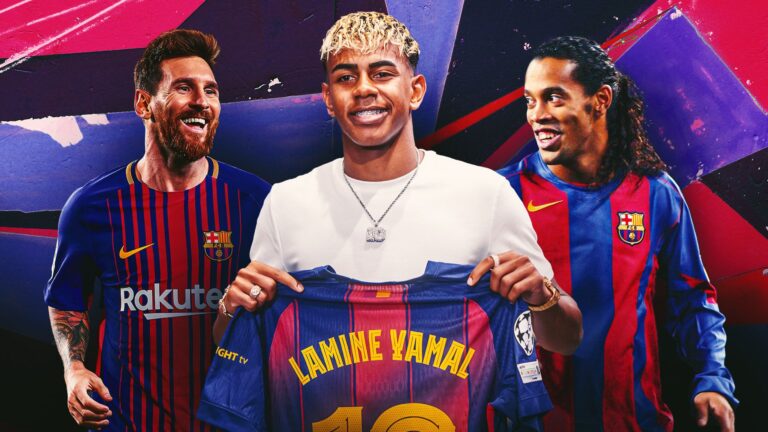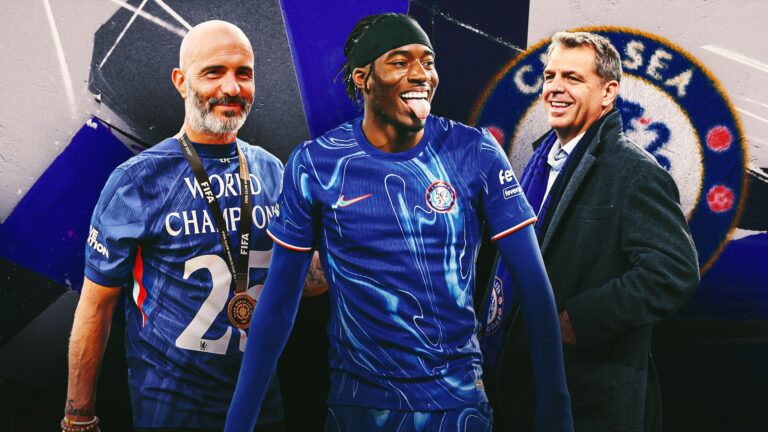مدير عام كرة القدم
Manchester United are on their third-consecutive pre-season tour of the United States as they yet again take part in touring some of the best stadiums America has to offer. And it is fitting that United and the rest of the teams participating in the Premier League’s Summer Series should be playing at NFL venues, because it is these very arenas which led to English football modernising and the creation of the most watched league in the world.
As recounted in Joshua Robinson and Jonathan Clegg’s book ‘The Club: How the Premier League Became the Richest, Most Disruptive Business in Sport’, then-Arsenal owner David Dein and Tottenham chief Irving Scholar were inspired to help form the breakaway Premier League after their trips across the pond to watch American football. The pair were blown away by the modern stadiums, the friendly atmosphere and, in Dein’s case, the cleanliness of the toilets. The pleasant experiences they had watching live sport was in sharp contrast to the contemporary terraces of English football, where "the threat of physical violence hung in air – along with the powerful smell of urine".
The NFL grounds that Dein and Scholar visited would later influence Arsenal and Tottenham’s new stadiums, which opened in 2006 and 2019, respectively. The Tottenham Hotspur Stadium even now hosts NFL matches. So when United began considering whether to renovate Old Trafford or build a brand new stadium, it was inevitable that they too would look to the NFL for inspiration.
Club staff studied new arenas, such as the SoFi stadium in Los Angeles, the Metlife in New Jersey and the Allegiant Stadium in Las Vegas on their tours in 2023 and 2024. When United unveiled plans for their £2 billion, 100,000 capacity stadium in March designed by Sir Norman Foster, the influence of American stadiums was plain to see.
It has recently emerged, however, that the club are also looking into adopting one of the most controversial and influential policies enacted by NFL franchises: charging supporters for the right to buy season tickets known in the U.S. as Personal Seat Licences (PSL). And if the club want to avoid a full-scale revolt from supporters and alienating many of the fans who have watched the team week in, week out for decades, they need to urgently drop the proposal.







Manchester United are on their third-consecutive pre-season tour of the United States as they yet again take part in touring some of the best stadiums America has to offer. And it is fitting that United and the rest of the teams participating in the Premier League’s Summer Series should be playing at NFL venues, because it is these very arenas which led to English football modernising and the creation of the most watched league in the world.
As recounted in Joshua Robinson and Jonathan Clegg’s book ‘The Club: How the Premier League Became the Richest, Most Disruptive Business in Sport’, then-Arsenal owner David Dein and Tottenham chief Irving Scholar were inspired to help form the breakaway Premier League after their trips across the pond to watch American football. The pair were blown away by the modern stadiums, the friendly atmosphere and, in Dein’s case, the cleanliness of the toilets. The pleasant experiences they had watching live sport was in sharp contrast to the contemporary terraces of English football, where “the threat of physical violence hung in air – along with the powerful smell of urine”.
The NFL grounds that Dein and Scholar visited would later influence Arsenal and Tottenham’s new stadiums, which opened in 2006 and 2019, respectively. The Tottenham Hotspur Stadium even now hosts NFL matches. So when United began considering whether to renovate Old Trafford or build a brand new stadium, it was inevitable that they too would look to the NFL for inspiration.
Club staff studied new arenas, such as the SoFi stadium in Los Angeles, the Metlife in New Jersey and the Allegiant Stadium in Las Vegas on their tours in 2023 and 2024. When United unveiled plans for their £2 billion, 100,000 capacity stadium in March, designed by Sir Norman Foster, the influence of American stadiums was plain to see.
It has recently emerged, however, that the club are also looking into adopting one of the most controversial and influential policies enacted by NFL franchises: charging supporters for the right to buy season tickets, known in the U.S. as Personal Seat Licences (PSL). And if the club want to avoid a full-scale revolt from supporters and alienating many of the fans who have watched the team week in, week out for decades, they need to urgently drop the proposal.
The introduction of PSLs, which could cost as much as £4,000 ($5,285) to reserve a seat at the new stadium, is just one of many ideas put forward in focus groups between the club and a select number of supporters. Such data gathering exercises are common before building a new stadium, and Everton conducted similar surveys while drawing up plans for their new ground, which officially opens its doors later in August.
During United’s consultations with fans, different groups were shown different content so the club could gauge reactions to a range of early ideas and themes to understand what resonates, what needs refinement, and how their thinking should evolve. And the club have been keen to stress that the issue of PSLs was just one of many questions asked in order to inform the commercial model. It is not a proposal, merely a question within a much wider survey and discussion point within a focus group.
And yet the fact that such a controversial idea – one never previously contemplated in English football – was even put forward by United suggests a worrying direction of travel. Red Devils fans have felt completely ignored and exploited ever since the Glazer family bought the club in 2005 in the hugely controversial leveraged takeover. The new owners immediately raised ticket prices and subsequently steadily increased them over the next few years while doing almost no renovation work on Old Trafford.
But things have gotten even worse since Sir Jim Ratcliffe bought his minority stake in the club in 2024.
The club did away with child and senior ticket concessions in the middle of last season, and when Ratcliffe was asked about the move by United We Stand he said the club cannot charge less for tickets than Fulham. The Cottagers have the highest season ticket prices in the league and charged up to £160 for the most recent fixture against United. But that was just the start of it.
A couple of months later, hundreds of fans who have sat in the Sir Bobby Charlton stand for decades were informed that their seats would be relocated so their spots, in a prime location next to the pitch and close to the tunnel, could be re-issued as VIP seats. United later announced a five percent increase in season tickets and then revealed that single-match tickets could be priced as high as £97 for the biggest games.
The increases were branded “a kick in the teeth” by the Manchester United Supporters Trust and came after a number of well-attended protests before matches. But rather than listening to supporters’ concerns like Manchester City did when they took similarly controversial measures, United are now considering even more exploitative strategies such as PSLs. And even though the proposal only popped up in a data gathering exercise, supporters are getting wary.
“This will force out supporters who have followed our club for decades home and away,” Chris Haymes of The 1958, which has organised the mass protests against the Glazers and the latest measures imposed by Ratcliffe, told بالجم. “It will price out the youth, local communities, and generations of loyal fans.
“It’s another step towards the Americanisation of our game which is ripping football away from its working-class roots, showing just how out of touch our club and owners have become. This isn’t about the game or the supporters – it’s about profit and greed over loyalty and tradition. We don’t believe a word the club say. United are a sounding board for all other clubs. Their actions prove their intentions. We will be campaigning hard against this.”
Long-standing United season ticket holder Steve, who has been in touch with several people who have attended the focus groups, also lambasted the notion of PSLs. He said: “Part of the pitch is that it not only secures your seat, but also protects you from being moved. That’s laughable considering the club has displaced 500 fans, many of them families who have sat in those same seats for over 25 years.
“United created the problem, forced people out, and now there’s talk of offering a paid solution to stop it from happening again. This is what happens when you have owners who don’t understand the soul of the game. They undervalue the very people who make football what it is – the fans. We matter more than they realise.”
PSLs are used across all major U.S. sports, but they are most common in the NFL. The Carolina Panthers were the pioneers, introducing the scheme in 1993, ahead of their launch. The move raised $122 million and helped pay for the bulk of the franchise’s new home, now called the Bank of America Stadium, which opened in 1996 at a cost of $187m.
Other franchises saw the success and followed suite. Today, 21 of the 32 NFL teams employ PSLs or a similar scheme. The Los Angeles Rams – owned by Arsenal chief Stan Kroenke – charge the most, pricing seat licences at up to £166,000 in 2017 ahead of the opening of the SoFi Stadium. The Dallas Cowboys, meanwhile, charge a maximum of £110,000.
The first MLS team to start a PSL scheme was Charlotte FC, ahead of their launch in 2022. This was despite the club having no stadium costs to pay as they play at the Panthers’ Bank of America Stadium. And the scheme has proved to be a total disaster, as home games never sell out and PSL owners have complained of being unable to sell their seat for individual games without significantly lowering the price.
Although the schemes are widespread and many fans cough up the money, they remain hugely controversial and unpopular. The Minnesota Vikings provoked the wrath of state governor Mark Drayton when they announced a PSL scheme for their U.S. Bank Stadium in 2012. “I strongly oppose shifting any part of the team’s responsibility for those costs onto Minnesota Vikings fans,” he wrote in a letter to the club’s owners. “This private contribution is your responsibility. Not theirs. I said this new stadium would be a ‘People’s Stadium’, not a ‘Rich People’s Stadium'”.
Drayton hit the nail on the head: the schemes are a shameless way for already rich owners to avoid paying for a stadium which they ultimately benefit more from than anyone else. NFL owners are famous for shirking the funding for stadiums, as only three of the leagues 30 arenas were entirely privately funded (the SoFi, Metlife and Gillette stadiums).
United have already followed the NFL playbook in one aspect with their planned new stadium, courting public funding to pay for the regeneration project of which the new ground will be part of. While the stadium itself will be entirely privately funded, the public funding of the wider project will naturally raise the value of the stadium in the long run, benefiting the Glazers and Ratcliffe.
There is already uproar about the public funding aspect of the regeneration project, and the British taxpayers would simply not tolerate having to pay for the stadium itself. The fact that the club are even entertaining the idea of PSLs shows that Ratcliffe wants fans to pay for a large chunk of the stadium for him.
And if anyone could pay for a new stadium, it is Ratcliffe. United’s co-owner has a net worth of £17.046 billion, according to the 2025 edition of the Sunday Times‘ Rich List. Although his personal fortune has declined by more than a quarter in the past year, he is still among the top 10 richest Britons and his firm is still performing well: Last year INEOS increased its revenues from from €14.9bn to €16.2bn. Operating profit rose from €707m to €1.1bn.
Ratcliffe, however, has not lived in the UK since 2020, when he moved to Monaco to avoid paying tax. Changing his fiscal residence was calculated to save him an estimated £4bn, roughly double the cost of the new stadium. Ratcliffe, often described as a man in a hurry, clearly sees the building of a new stadium as the main legacy he wants to leave at United. And if that is the case, he should pay for it with his immense wealth and not even suggest that supporters subsidise it.
United have huge support in the U.S., and despite visiting the States for a third consecutive summer, not to mention the team just having their worst season in 51 years, demand for tickets has been huge. There was a stunning attendance of 82,566 for the 2-1 win over West Ham at the MetLife Stadium, a bigger crowd than for the Club World Cup final at the same venue two weeks prior.
The appeal of United and other Premier League clubs in the States is something to celebrate, but it is worth remembering what attracts them to English football in the first place: the passion, the atmosphere, the sense of belonging and the bond between local club and community. These factors have been lost in many instances in U.S. sports, where greedy owners have dragged franchises away from their local communities and to new surroundings in search of bigger profits. Take how Oakland, a city on a similar scale to Manchester and Liverpool, has recently lost both its baseball and American football team to the bright lights of Las Vegas.
There is a lot to like about U.S. sports, and both Major League Baseball and the NFL are growing in popularity in the UK. But there is a danger that by trying to imitate the greed of their fellow billionaires on the other side of the Atlantic, English football could lose everything that makes it so special and attractive to international fans.
At this stage, PSLs might just be an idea for United, but they are a disastrous one and need to be consigned to the bin immediately.


